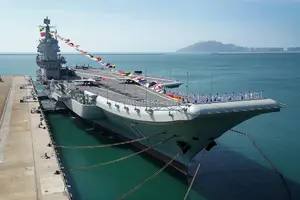The G7 Foreign Ministers, alongside the EU’s High Representative, have reiterated their commitment to maintaining a secure and free maritime domain rooted in international law. Acknowledging the integral role of maritime security in global stability and prosperity, they highlighted that over 80% of global trade occurs via sea, making disruptions a threat to food security and economic stability.
Concerns over maritime security have intensified due to factors like strategic contestation, threats to navigation freedom, and illicit shipping activities, which raise the risk of conflict and environmental harm. The G7 emphasized the importance of the UN Convention on the Law of the Sea (UNCLOS) as a governing framework for ocean and maritime activities. They acknowledged ongoing initiatives aiming at enhancing maritime security, such as the G7++ Friends of the Gulf of Guinea and various working groups addressing undersea cable security and combating maritime crime.
Freedom of navigation was underscored as vital, particularly against recent militaristic attempts to expand jurisdiction unjustly in areas like the South China Sea and the Taiwan Strait. The G7 condemned China’s aggressive actions that threaten regional stability and stressed the need for coastal states to refrain from unilateral alterations that might impede future agreements regarding maritime boundaries.
Maritime crime, including piracy, human trafficking, and illegal fishing, poses ongoing challenges. G7 members are working to combat these issues collaboratively, recognizing the evolving nature of maritime illegalities. Recent aggressive attacks in the Red Sea, notably by Houthi forces supported by Iran, have raised alarms over maritime security and trade disruptions, emphasizing the need for protective measures in crucial shipping lanes.
The parties also discussed the risks posed by unsafe and illicit shipping practices. Concerns were raised over shadow fleets used to bypass sanctions and engage in illegal activities, with efforts underway to increase monitoring and support capacity building in maritime governance.
To further strengthen maritime supply chains, the G7 highlighted the need for resilience amidst geopolitical tensions and environmental risks. Initiatives like the Grain from Ukraine scheme were acknowledged as vital for energy and food security. Additionally, plans were discussed to improve port security and infrastructure resilience against both environmental degradation and geopolitical influences. The management of strategic waterways was deemed critical to national security.
Lastly, the document addressed the dangers of unexploded ordnance (UXO) in marine environments, advocating for enhanced cooperative efforts to mitigate this hazard. Overall, the G7 commitments demonstrate a comprehensive approach to ensuring maritime security, emphasizing cooperation, legal frameworks, and proactive measures to enhance resilience against a variety of threats.
Source link



